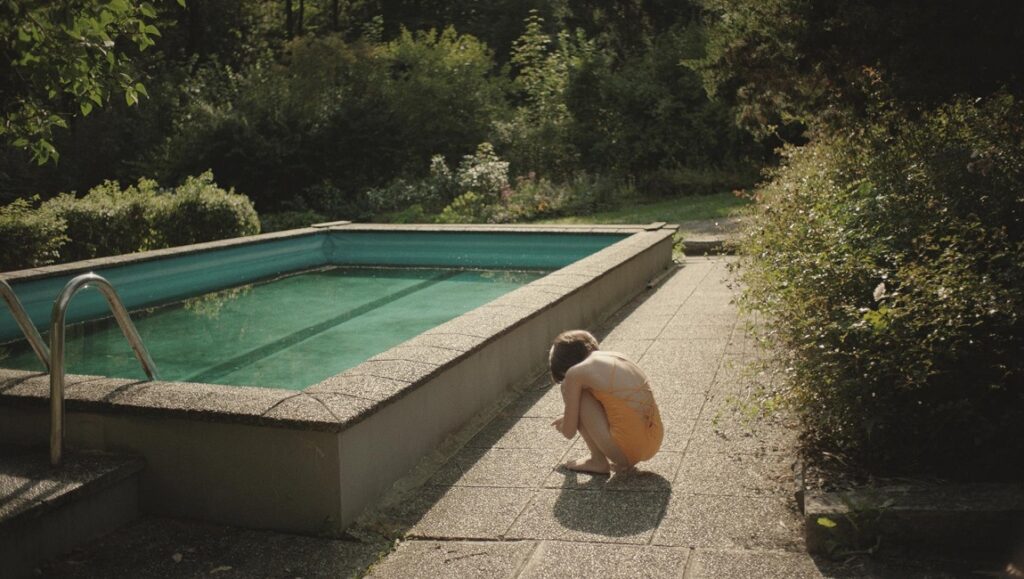The Trouble with Being Born is remarkable not just for its futurism and ambient atmosphere, but for the care with which its relationships — not all interpersonal — are crafted.
Austrian director Sandra Wollner’s The Trouble with Being Born is a stylish, small-scale film whose narrative revolves around a child-like android called Elli who spends the summer with her father-figure custodian/creator. (Premiering in the Berlinale’s inaugural Encounters section, it is, you might say, something of a cyborg riff on Pinocchio.) The pair live together in a secluded house that resembles a space station on a strange, faraway planet, and the setting is reminiscent of the bourgeois countryside villa one finds aplenty in ’60s European flicks where characters struggle with isolation and ill-fated romance. As the narrative does not provide any backstory for the characters or any explanation for their behavioral intentions, Wollner’s ambient film — with its disquieting mood and myriad internal tensions — becomes defined by its meticulous observation of architectural space and dead time. The camera patiently depicts the oddball relation between Elli and her father-figure, and every now and then follows them, ghostlike, from one hallway or room to another, as if suggesting that their repetitive movements are enclosed within a labyrinth or invisible web.
The Trouble with Being Born is remarkable not just for its futuristic space and atmosphere, but also for how it depicts the relationship of the central house and the surrounding mystic forest. The latter functions as a gateway for Elli to escape to the outside world and also enables Wollner to combine sci-fi with folklore. Elli, previously the confidant of her “father,” runs away from home/prison and meets an old lady who becomes her mother figure and new guardian. She changes her face and gender, essentially relinquishing her previous identity, and continues living in oblivion with her new custodian. But as the transient flashes of Elli’s past life appear, the film takes a new turn, reveals more of its existential-theological subtext, and unleashes its hidden tensions. Elli tragically fails on his/her journey back home, but the sound of his/her footsteps echoing along an empty, never-ending highway and the horrifying noise of the environment continues to haunt the viewer. The final, lingering image, then, is of a girl/boy/machine who becomes an eternally wandering ghost.
Originally published as part of Berlin International Film Festival 2020 | Dispatch 1.


Comments are closed.